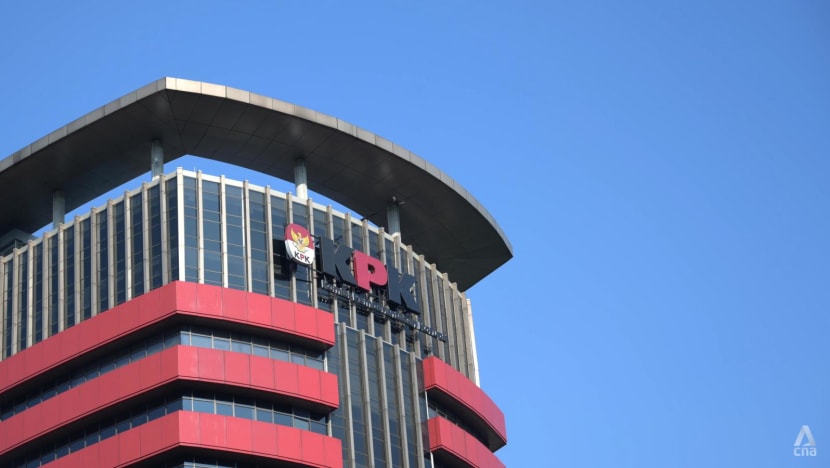JAKARTA: Indonesia plans to pardon graft convicts and suspects who agree to return stolen assets to the state in what a minister said is “a new approach” to tackling corruption.
Under the new approach, the primary objective is to recover stolen assets for public benefit, said Chief Legal Affairs Minister Yusril Ihza Mahendra.
“We want law enforcement against corruption to benefit the people by returning the stolen money to state coffers. If graft convicts are simply put in jail, what is the benefit to our people?” Minister Yusril told television network BTV last Friday (Dec 20).
The idea, which was raised by President Prabowo Subianto last Wednesday (Dec 18) during his visit to Egypt, has however been questioned by some critics.
Mr Prabowo said his government may provide ways in the coming weeks or months for graft convicts and suspects to discreetly return what they stole.
“I am giving them the opportunity to repent. Hey you corrupters, or those who feel that you have stolen from the people, if you return what you stole, we might forgive you, but please return it,” Prabowo said in a speech at Cairo’s Al-Azhar University that was attended by hundreds of Indonesian university students.
Yusril, who is Coordinating Minister for Law, Human Rights, Immigration and Corrections, said the government is drafting a presidential decree to implement the programme, which will include a specific deadline.
“The presidential pardon will be granted if they return the stolen assets by Aug 1, 2025 at the latest,” Yusril was quoted as saying by news outlet Jakarta Globe. The president has the authority to pardon convicts or suspects under Article 14 of the 1945 Constitution, which supersedes statutory laws, noted Yusril.
The proposed pardon of graft offenders is part of a broader programme aimed at addressing the country’s overcrowded prisons, he said.
Earlier this month, it was reported that Prabowo plans to grant amnesty to over 40,000 inmates, or about 30 per cent of the country’s prison population. Those who could be pardoned include drug offenders, those with mental disorders and those jailed in Papua province for criticising the government.
Without providing numbers, Yusril said graft convicts account for a small fraction of the 44,000 inmates who would be eligible for a presidential pardon.
The pardons could extend to graft suspects under investigation who agree to return the stolen money, he said, noting that those who comply would not face prosecution and their identities would not be revealed.
“Those who are being investigated or tried for corruption will be cleared of charges if they return the stolen state assets,” he said, as quoted by Jakarta Globe.
“After decades of focusing on punitive measures, it’s evident that we need a new approach to tackle this enduring issue,” added Yusril, highlighting Indonesia’s “worsening” performance in global corruption rankings.

According to Transparency International’s 2023 Corruption Perceptions Index, Indonesia ranked 115th out of 180 countries with a score of 34 out of 100.
A lower score indicates greater corruption, and it was Indonesia’s joint-lowest score in a decade and a decrease from the 40 it scored in 2019. In comparison, neighboring Malaysia ranked 57th and Singapore ranked 5th in the 2023 index.
Critics have warned that the Indonesian government’s proposed approach could, in fact, undermine its corruption fight.
Former Coordinating Minister for Political, Legal and Security Affairs Mahfud MD, who is also former chief justice of the constitutional court, said it could potentially weaken the principles of transparency and accountability, especially if there is no clear mechanism to verify the amount of money returned.
“Transparency and accountability are important and if no one reports, it cannot be ascertained whether the amount handed over to the state is correct or not,” he was quoted as saying by media outlet Tempo last Friday (Dec 20).
The government should focus more on uncovering networks that “protect” corruptors, he added.
An anti-corruption researcher told news outlet The Jakarta Post that the government should support firm and tough actions against graft suspects.
“While the President may have good intentions, the idea contradicts the Anticorruption Law, which mandates that returning state losses does not eliminate the crime,” said Zaenur Rohman, a researcher at the Centre for Anticorruption Studies at Gadjah Mada University.
Zaenur said the government could consider deferred prosecution agreements, where prosecutors and accused parties reach an agreement to suspend legal proceedings if the latter fulfill certain requirements such as making compensation and payment of financial penalties.
Prabowo, who took office on Oct 20, has vowed to eradicate corruption and take a “realistic” approach by increasing wages of state officials, including judges.
